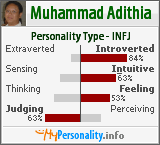John La Valle
I've had so many requests from people to explain about the powerful use of verbs and their relationship to time that I've republished an article from a long ago newsletter, especially since we've just completed another Neuro Hypnotic Repatterning™ seminar with Richard Bandler:
CAN YOU JUST IMAGINE what it would be like if we had to communicate without words? There are people who do it everyday. But what if you had to do it? Could you? Could I?
WHEN YOU THINK ABOUT WHAT words are, aren't they just really icons? Some symbol that triggers off another program (or strategy)? So what if you could design (morph) new words? How could you convey what they mean? This is done all the time by advertising agencies, marketing groups, and others, as well.
BUT ONE THING MANY PEOPLE seem to have gotten away from is the use of some very specific verb tenses that already exist in our language. I'm not sure why so many people have gotten away from them. Perhaps it's because they "sound" weird. And then on the other hand I get so many requests for information about how to make NLP work better in our own lives that I just couldn't resist putting this one into this newsletter, once again. Now before you go on and say, "Oh no, I didn't know this newsletter was going to be a lesson in grammar", remember that *how* we use our language is the very essence of NLPand what you can do with it. So,
HERE ARE SOME TENSES to remember and use:
First remember there are finite verbs and infinite verbs.
FINITE VERBS (limited according to person and number) have 6 tenses: present, future, imperfect, perfect, pluperfect and future perfect. Infinitives (not limited in person or number) have 3 tenses: present, future, past.
NOW LET'S TAKE A LOOK AT THE TENSES:
Present: He runs. He does run. He is running
Perfect (past): He ran. He did run. He was running
Pluperfect: He had run
Imperfect: He used to run. He would run
Future: He will run. He will be running
Future Perfect: He will have run. He shall have run.
NOW IF YOU WERE TO take these and use them interchangeably so that you could "experience" the difference, noting especially what shiftsare made relative to your timeliness, I'm wondering what they would be?
FOR EXAMPLE: SUPPOSE you have something you've been wanting to do, specifically a behavior, then just imagine the possibilities if you first notice your time and space references (timeliness) regarding this behavior. Let's say, it's even something you consider to be a problem you've been wanting to solve for quite some time, but haven't, yet. (I love that word "yet". It really opens the possibilities, haven't you already noticed?)
NOW IF YOU SAY: I want to "X", notice where (in space and time) this is, in your mind. Now let's make some things perfectly clear. Since you've done things in the past and know how much easier it is to do it the second time, why not shift the verb so that is shifts spatially into the past, thereby changing your reference to the time. It's not enough to just think that you have done "X", although this could work sometimes. But if you take it to the future and thenshift it perfectly into the past, then back into the future as a future pace, wouldn't that be grand? So, as you think of "X", what will it have been like to have done it already once you have already done it . . . so that the next time you will be doing it, it is soooooo much easier, isn't it? (Read this last sentence again, slowly and experience the impact it has on our own neurology).
AND SO, MAKING SOME OF THOSE ever so subtle verb tense shifts can be quite powerful and even empowering. It sort of makes you want to goback and refresh some of those grammar lessons, doesn't it? Well, when you do, you will have noticed how many times you have already used your own language so well that, you'll begin to listen to yourself even more now than you could have thought possible before you had read this here. And what a difference you can make in your own life, as well as others, from this moment forward.
©2008 John La Valle




No comments:
Post a Comment